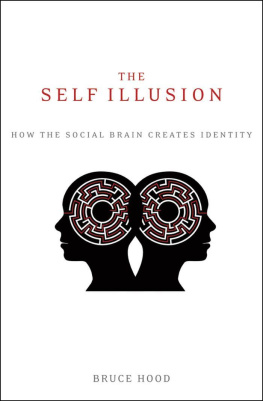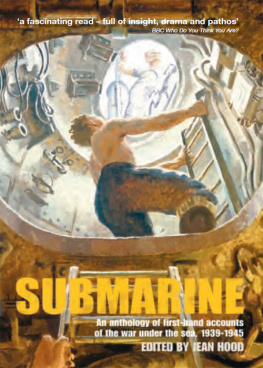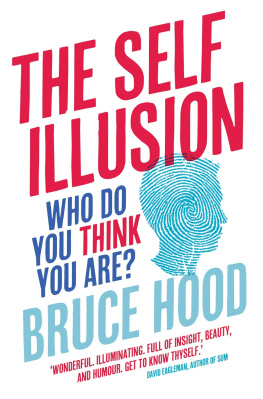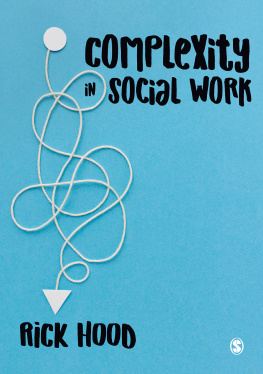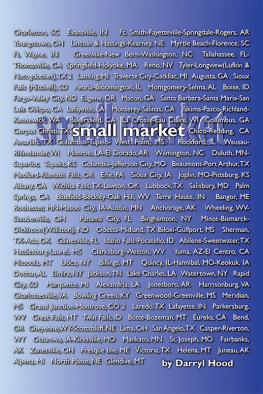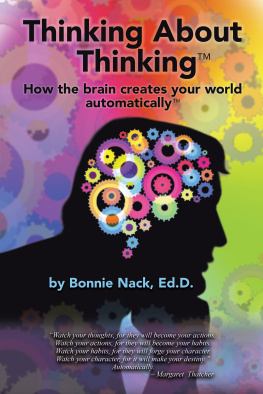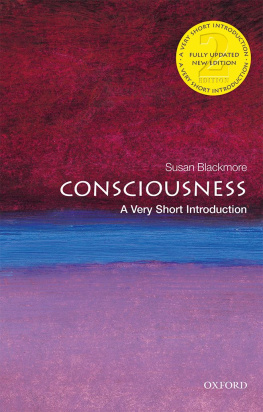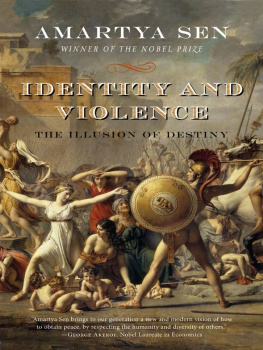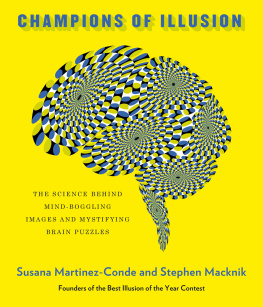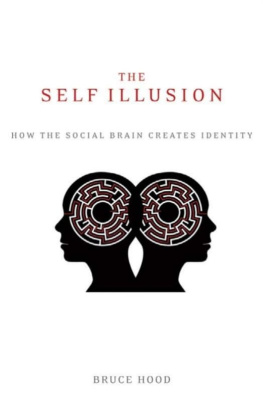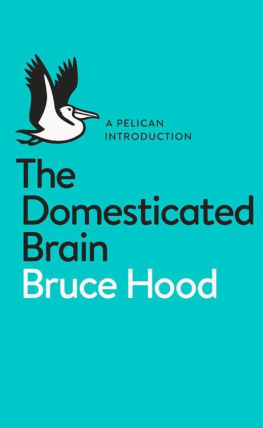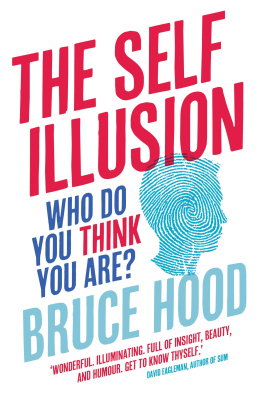Hood - The self illusion : how the social brain creates identity
Here you can read online Hood - The self illusion : how the social brain creates identity full text of the book (entire story) in english for free. Download pdf and epub, get meaning, cover and reviews about this ebook. City: New York, year: 2012, publisher: Oxford University Press, genre: Religion. Description of the work, (preface) as well as reviews are available. Best literature library LitArk.com created for fans of good reading and offers a wide selection of genres:
Romance novel
Science fiction
Adventure
Detective
Science
History
Home and family
Prose
Art
Politics
Computer
Non-fiction
Religion
Business
Children
Humor
Choose a favorite category and find really read worthwhile books. Enjoy immersion in the world of imagination, feel the emotions of the characters or learn something new for yourself, make an fascinating discovery.
- Book:The self illusion : how the social brain creates identity
- Author:
- Publisher:Oxford University Press
- Genre:
- Year:2012
- City:New York
- Rating:3 / 5
- Favourites:Add to favourites
- Your mark:
- 60
- 1
- 2
- 3
- 4
- 5
The self illusion : how the social brain creates identity: summary, description and annotation
We offer to read an annotation, description, summary or preface (depends on what the author of the book "The self illusion : how the social brain creates identity" wrote himself). If you haven't found the necessary information about the book — write in the comments, we will try to find it.
The self illusion : how the social brain creates identity — read online for free the complete book (whole text) full work
Below is the text of the book, divided by pages. System saving the place of the last page read, allows you to conveniently read the book "The self illusion : how the social brain creates identity" online for free, without having to search again every time where you left off. Put a bookmark, and you can go to the page where you finished reading at any time.
Font size:
Interval:
Bookmark:
Also by Bruce Hood
SuperSense: Why We Believe the Unbelievable
How the Social Brain Creates Identity
Bruce Hood


Oxford University Press, Inc., publishes works that further
Oxford Universitys objective of excellence
in research, scholarship, and education.
Oxford New York
Auckland Cape Town Dar es Salaam Hong Kong Karachi
Kuala Lumpur Madrid Melbourne Mexico City Nairobi
New Delhi Shanghai Taipei Toronto
With offices in
Argentina Austria Brazil Chile Czech Republic France Greece
Guatemala Hungary Italy Japan Poland Portugal Singapore
South Korea Switzerland Thailand Turkey Ukraine Vietnam
Copyright 2012 by Bruce Hood
Published by Oxford University Press, Inc.
198 Madison Avenue, New York, New York 10016
www.oup.com
Oxford is a registered trademark of Oxford University Press
All rights reserved. No part of this publication may be reproduced,
stored in a retrieval system, or transmitted, in any form or by any means,
electronic, mechanical, photocopying, recording, or otherwise,
without the prior permission of Oxford University Press.
Library of Congress Cataloging-in-Publication Data
Hood, Bruce M. (Bruce MacFarlane)
The self illusion : why there is no you inside your head/Bruce Hood.
p. cm.
Includes bibliographical references and index.
ISBN 9780199897599 (hardback : alk. paper)
1. Self. 2. Brain. 3. Cognition. I. Title.
BF697.H554 2012
155.2dc22
2011047151
9 8 7 6 5 4 3 2 1
Printed in United States of America
on acid-free paper
The Reflected Self
Last night, I finished reading the biography of Howard Hughesthe tycoon, the aviator, the movie mogul, the socialite, and, finally, the reclusive billionaire, housebound by his pathological fear of dirt. At the time of his death, Hughes was worth $2 billion but he ended his days as an unwashed recluse, dressed in rags, with long, matted hair, curling nails, and the remnants of five hypodermic needles embedded in his arms. Throughout his life, he was a man of multitudes and paradoxes. He loathed social contact but then pursued and bedded hundreds or reputedly thousands of women. He would spend lavishly on fanciful movie projects and young starlets but then quibble over a few dollars on the expense sheet. He was a brash, fearless pilot who regularly placed himself at risk during the pioneering days of aviation, when he set and broke many speed and distance records, and yet his obsessive-compulsive disorder compelled Hughes to be terrified of dying from germs. His close confidant and advisor, Noah Dietrich, explained in his memoir, There was more than one Howard Hughes.
This got me thinking. Are there people like that today? In recent years there have been Britney, Mel, Winona, and Tiger: they all seem to have skeletons in their closets, or at least dark sides to their personalities that are so at odds with their public profileserratic behaviors that seem so uncharacteristic. The gossip columns thrive on uncovering the hidden truths about celebrities, but are we mere mortals any different? Most of us believe that we are individuals making our own decisions and true to our self, but are we? We may not swing from one extreme to the next as Howard Hughes famously did, but are we more coherent? Is there a single you?
These questions may seem illogical to many. We are so familiar and comfortable with the experience of our self that to question it implies that we may be suffering from mental illness. Almost like asking if we are real or not. And yet, that is the question addressed here. Are we all mistaken when it comes to knowing who we are?
Each morning, we wake up and experience a rich explosion of consciousnessthe bright morning sunlight, the smell of roast coffee and, for some of us, the warmth of the person lying next to us in bed. As the slumber recedes into the night, we awake to become who we are. The morning haze of dreams and oblivion disperses and lifts as recognition and recall bubble up the content of our memories into our consciousness. For the briefest of moments, we are not sure where we are and then suddenly I, the one that is aware, awakens. We gather our thoughts so that the I who is conscious becomes the methe person with a past. The memories of the previous day return. The plans for the immediate future reformulate. The realization that we have things to get on with reminds us that it is a workday. We become a person whom we recognize.
The call of nature tells us that it is time to visit the bathroom and en route we glance at the mirror. We take a moment to reflect. We look a little older, but we are still the same person who has looked in that same mirror every day since we moved in. We see our self in that mirror. This is who we are.
This daily experience of our self is so familiar, and yet the brain science shows that this sense of our self is an illusion. Psychologist Susan Blackmore makes the point that the word illusion does not mean that it does not existrather, an illusion is not what it seems. We all certainly experience some form of self, but what we experience is a powerful deception generated by our brains for our own benefit.
But there is a real difficulty in discussing the self illusion. Throughout this book, the terms I, me, my, mine, you, yours, our, us, and we are used, which all imply the existence of a self or multiple selves. (I also separate words such as yourself into your self and ourselves into our selves for the sake of emphasis.) You might conclude that the premise that the self is an illusion must be false because these terms already acknowledge the existence of the self in the first place. The problem is that there is no simple way around discussing the self without using these words that refer to this human experience most of us have.
Second, understanding that the self could be an illusion is really difficult. It may be one of the most, if not the most, difficult concepts to accept. Our self seems so convincing, so real, so us. But then again, many aspects of our experiences are not what they seem. Take the most lucid experience that you are having right now as you read these words. As your eyes flit across the page, your visual world seems continuous and rich, but you are actually only sampling a fraction of the text one bit at one time, rarely reading all the letters in between. Your peripheral vision is smeared and colorless, yet you could swear that it is perfectly clear just like the center of your visual field. There are two blindspots, the size of lemons at arms length, just off-center from your field of view that you do not even notice. Everything in your visual world is seamless and unbroken, yet your visual world is blacked out for a fraction of a second between eye movements. You are not made aware of any of these imperfections because your brain provides such a convincing cover story. The same deception is true for all human experience, from the immediacy of our perception to the contemplation of inner thoughts, and that includes the self.
In challenging what is the self, what most people think is the self must first be considered. If you were to ask the average person in the street about their self, they would most likely describe the individual who inhabits their body. They believe they are more than just their bodies. Their bodies are something their selves controls. When we look in the mirror, we regard the body as a vessel we occupy. This sense that we are individuals inside bodies is sometimes called the ego theory, although philosopher Galen Strawson captures it poetically in what he calls the pearl view of the self. This pearl view is the common notion that our self is an essential entity at the core of our existence that holds steady throughout our life. This ego experiences life as a conscious, thinking person with a unique historical background that defines who he or she is. This is the I that looks back in the bathroom mirror and reflects upon who is the me.
Font size:
Interval:
Bookmark:
Similar books «The self illusion : how the social brain creates identity»
Look at similar books to The self illusion : how the social brain creates identity. We have selected literature similar in name and meaning in the hope of providing readers with more options to find new, interesting, not yet read works.
Discussion, reviews of the book The self illusion : how the social brain creates identity and just readers' own opinions. Leave your comments, write what you think about the work, its meaning or the main characters. Specify what exactly you liked and what you didn't like, and why you think so.

